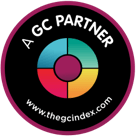13 November, 2024
Here is our simple yet highly effective tips that will elevate your pitch deck when prospecting
Part of working at an agency is pitching. This can feel strange. Not many industries require you to invest so much time and effort to find business.
Then, you hear, “Sorry, we chose another agency or we are going to stick with our current one!” We will share some simple but effective tips. These tips will improve your pitch deck and boost your chances of success.
1. Chemistry
Typically, there is a beauty parade for larger, long-term projects (or retained work). This is where you get to meet them, and they get to meet you. You should know who you’re meeting in advance, and if you don’t, then find out (because that isn’t an unreasonable question).
Who are you going to bring? If your prospect has five people in the meeting, then turning up alone could send signals that your agency is too small or, worse still too busy to manage this account. Equally, sending five people when you’re only meeting one person is overkill, this may signal that you’re desperate for work. Find the balance.
You should have a clear set of questions for them. Know who is asking what and prepare for their questions. Just attending these meetings is lazy and likely to reduce your chance of success.
Introductions. These can be boring or they can be memorable. Many years ago I took five people to a Chemistry Session.
We wanted to win another large F&B brand. We decided to create fun facts about the team, some were truths and others lies. They had to match the facts to the person. Our prospective client loved our chemistry session so much that they phoned the next day to tell us!
2. Pitch Decks
If you haven’t already, the danger with pitch decks is you can spend heaps of time talking about what you’ve done for other people or telling your prospect how amazing you are. Whilst these are essential markers to demonstrate your skills and expertise don’t spend too long on this.
Do your research. One of my biggest learnings early in my career was to make assumptions. We were already on the roster for this client. They sent a pitch for another arm of the business. We assumed that we knew everything and had this in the bag.
Wrong! We lost the pitch. Why? Because we didn’t do our research.
The agency that won the pitch had gone and spoken to end users of the product and had done their research.
The lesson? We never went into any business either at the Chemistry session or the pitching stage without testing, experiencing or speaking to end product users. THIS IS CRITICAL.
3. Answer the brief
While it is great to demonstrate creativity, you need to answer the brief. So keep re-reading it. Ask yourself:
Does this answer the brief?
Will our answers create the outcome the prospect is looking for?
Does the end user understand what we’ve done?
4. Language
I was recently speaking with the Managing Director of an advertising agency. He had created a proposal that, on the face of it, seemed suitable and met the brief. However, hidden amongst the deck were small, fundamental flaws that could affect the outcome.
People buy emotionally and decide rationally. So you need to start with an emotional play and end your presentation with a similar or similar emotional cue. DO NOT finish on next steps – that is mechanical and forgettable.
Never use the word cost! You are not a cost. You are an investment. Why? Because the person buying your product or service will get an outcome from their investment. Simples.
5. Action Language
Your client wants to know that you’re a doer. So rather than ‘creating a website’ you ‘create a buying environment which will generate inbound leads’? You can apply this to almost any product or service you sell – it is the outcome your client is expecting. It talks to them and answers their wants and needs.
Think about this on your next pitch. Make small improvements to show your potential clients that you understand their challenges. You can help them reach their goals and be a trusted advisor. If you get it right, your client service skills at this stage of the process will create a competitive advantage.
There some additional useful tips on this short YouTube video below…






